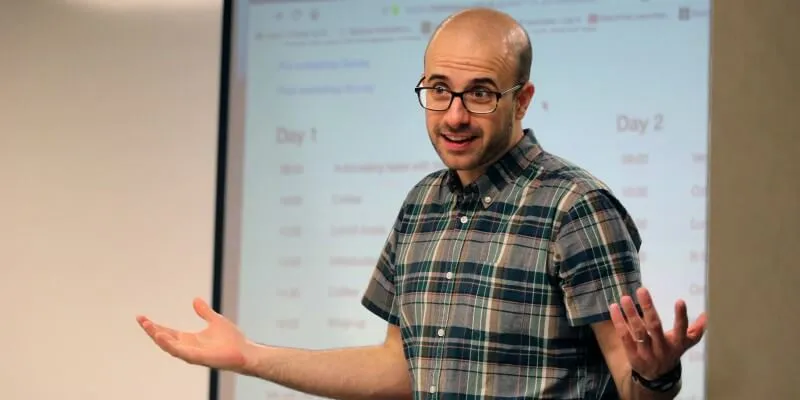Easton White refers to himself as a quantitative ecologist—his specialty is translating biological systems into math equations. He uses math to understand how to improve species management and understand socio-ecological systems.
One of his latest projects will take him to Madagascar as co-principal investigator of a recent $600,000 National Science Foundation Grant titled “Socio-Ecological Feedbacks of Marine Protected Areas: Dynamics of Small-Scale Fishing Communities and Inshore Marine Ecosystems.”
The grant’s principal investigator, Merrill “Mez” Baker-Medard, assistant professor of environmental sciences at Middlebury College, specializes in marine fisheries management and environmental politics in Madagascar. Elizabeth Fairchild, associate professor of biology at the University of New Hampshire, is also a co-principal investigator for the grant. Another partner is the Marine Sciences and Fisheries Institute in Madagascar.
“Mez is a social scientist whose research looks at natural resource governance and how the benefits of those resources—like fisheries—relates to gender, race and class,” White says. “My piece is looking at the data and trying to understand long-term trends in fisheries development.”
Why Madagascar?
“Madagascar is a developing country that’s about to triple its marine protected areas,” White explains. “In other areas around the world, protected areas have been around for a long time. Here we have a chance to assess the implementation on the ground floor.”
Building a sustainable fishing industry is important for Madagascar’s economy and for basic nutrition—fish is an important source of protein for the local population.
The expansion of fisheries in Madagascar comes at a time when global Marine Protected Areas (MPA’s), zones with restricted human activity including fishing, are growing rapidly. The research may provide crucial guidance to organizations implementing conservation globally, and contribute to scholarship investigating connections between resource management strategies and socioecological outcomes.
“As a relatively poor country, Madagascar presents a lot of opportunity to think about integration food systems and environmental systems,” White says.
Interdisciplinary Approach
White likes to explore the territory where different disciplines overlap, and the five-year project brings together elements of conservation biology, sociology and political science. He’s eager to share the interdisciplinary experience with students from each of the three institutions who will travel to Madagascar to participate in field research and data analysis, and he sees roles for students in the humanities, social sciences and biology.
“A key piece of the project is to think about how ecosystem health affects the community,” White says, “How does their willingness to participate in conservation affect harvesting? And how does that harvesting effect ecosystem health? Typically we tend to study topics in isolation. In this project we’re looking at the connection between very different things.”
Malagasy fisherman and students will be trained to gather data at ten research sites located along three coastal areas of the island. Community engagement is a central element in successfully drafting and implementing policy governing Malagasy fisheries.
Research will qualitative and quantitative social data collected through surveys of people living in coastal villages to explore how different levels of community engagement, different harvest targets, and modes of harvest influence the ecology of an MPA.
White says the study can also shed light on socioeconomic outcomes of changing policies.
“The study focuses on people involved in fisheries. That could mean people who are catching, or processing or selling fish across the industry, but also thinking about gender issues—who has access to a fishery? Who is doing most of the fishing? Who is doing what types of fishing and how does that affect who makes money and who has adequate proteins in their diets? It boils down to who has a say.”
